8 surprising garden laws you could be accidentally breaking
From high hedges to fruit trees – these are the unexpected garden laws you need to know about


Design expertise in your inbox – from inspiring decorating ideas and beautiful celebrity homes to practical gardening advice and shopping round-ups.
You are now subscribed
Your newsletter sign-up was successful
Want to add more newsletters?

Twice a week
Homes&Gardens
The ultimate interior design resource from the world's leading experts - discover inspiring decorating ideas, color scheming know-how, garden inspiration and shopping expertise.

Once a week
In The Loop from Next In Design
Members of the Next in Design Circle will receive In the Loop, our weekly email filled with trade news, names to know and spotlight moments. Together we’re building a brighter design future.

Twice a week
Cucina
Whether you’re passionate about hosting exquisite dinners, experimenting with culinary trends, or perfecting your kitchen's design with timeless elegance and innovative functionality, this newsletter is here to inspire
We don’t purposefully venture into our gardens to practise illegal activity, but we may be accidental criminals – according to new research.
See: Backyard ideas – design ideas for your backyard, whatever its size or style
A recent report* has suggested that thousands of us may be guilty of breaking several surprising garden laws – covering everything from harmful weeds to fences.
So, to make sure we all stay on the right side of the law, we rounded up tips from Guy Barter, Chief Horticulturist at the RHS.
1. Weeds in neighboring gardens

We all have garden weeds, but how many of us have illegal garden weeds? The Weeds Act of 1959 declares that landowners are compelled to clear any injurious weeds, including ragwort or Canada thistle.
‘Otherwise weedy neighbors do as they please as long as they do not cause a nuisance in the legal definition,’ Guy shares.
2. High evergreen hedges

Tall hedges are subject to an Antisocial Behavior Order (ASBO) that compel their owner ‘to reduce them to a ‘reasonable size’ defined by several detailed official booklets.’ However, Guy adds that ‘this regulation does not cover bamboo and deciduous hedges.’
Design expertise in your inbox – from inspiring decorating ideas and beautiful celebrity homes to practical gardening advice and shopping round-ups.
Note, if a hedge that belongs to your neighbor hangs into your property, you have permission to trim it – but, by law, you should return the offcuts to the landowner.
3. Plant refunds
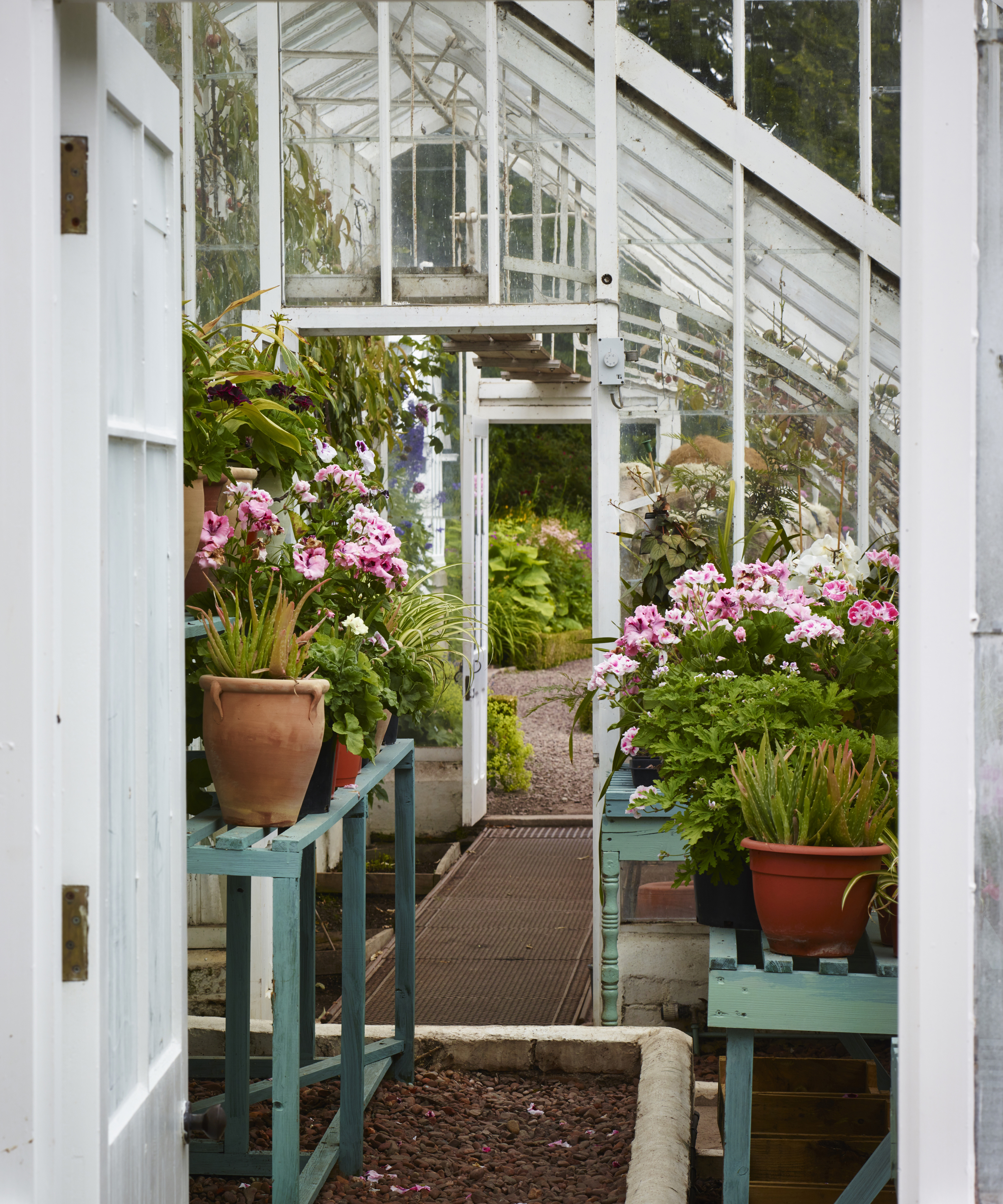
‘If you buy a plant, you are allowed reasonable time to get recompense if the plant turns out not as described,’ Guys says.
He continues: ‘A wisteria, for example, notoriously, may not flower for several, perhaps as many as 10 years after planting, so if ordered as blue and it turns out to be white some years later, you can still legally speak and seek a refund or replacement.’
4. Right to light
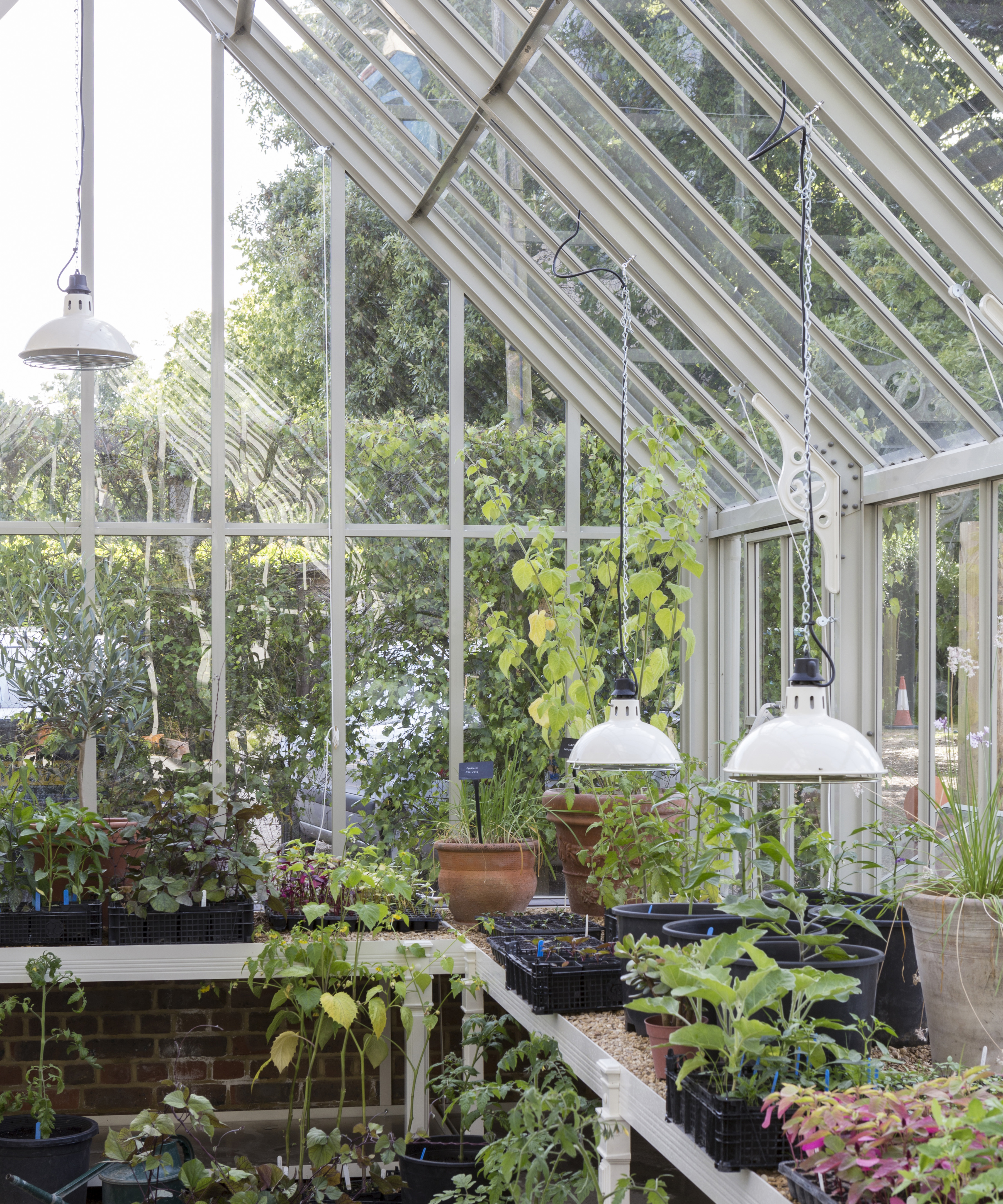
We can’t go wrong with garden lights, surely? According to Guy, we can.
‘In general, you have no right to light for your garden, but there are exceptions, if there are restrictions or covenants on fences or buildings, in the deeds of your neighbor’s property, for example,’ he says.
‘You can get a right to light for buildings, including greenhouses or windows. If you have enjoyed light for 20 uninterrupted years, you have a right to enjoy reasonable light in the future.’
5. Severing branches and roots
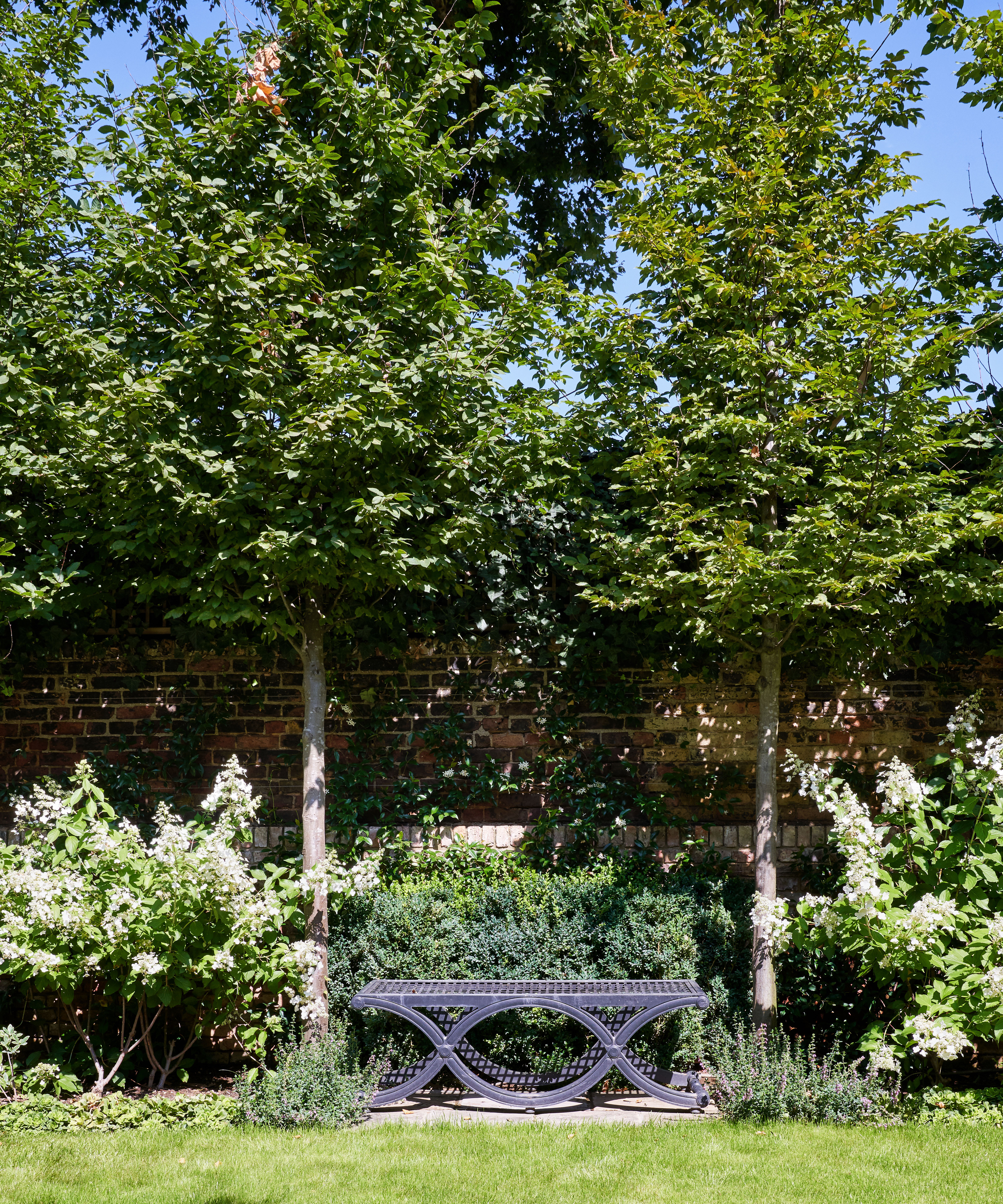
See: Country garden ideas – planting and landscaping to reflect your rural setting
While it is legal to cut branches and roots that intrude from your neighbor's land, Guy notes that the pruning ‘must not endanger the tree’s survival nor must you poison the roots.’
‘If it dies, you may be liable to pay compensation, and trees can be valued in thousands of pounds. All severed material must be offered back to your neighbor although they are not obliged to accept them,’ he adds.
6. Fruit trees

See: Kitchen garden ideas – easy ways to get started
Perhaps one of the surprising garden laws is the rule surrounding fruit trees and their produce, which are covered by little-known regulations.
‘If your fruit tree extends its boughs into the next-door garden, the fruit remains yours, and your neighbor is not entitled to it – unless it falls naturally when the law assumes it has been abandoned,’ Guy shares.
Plus, we shouldn’t be tempted to throw the fruit back into our neighbor's garden, as this can be classed as ‘garden waste fly tipping.’
7. Garden saunas
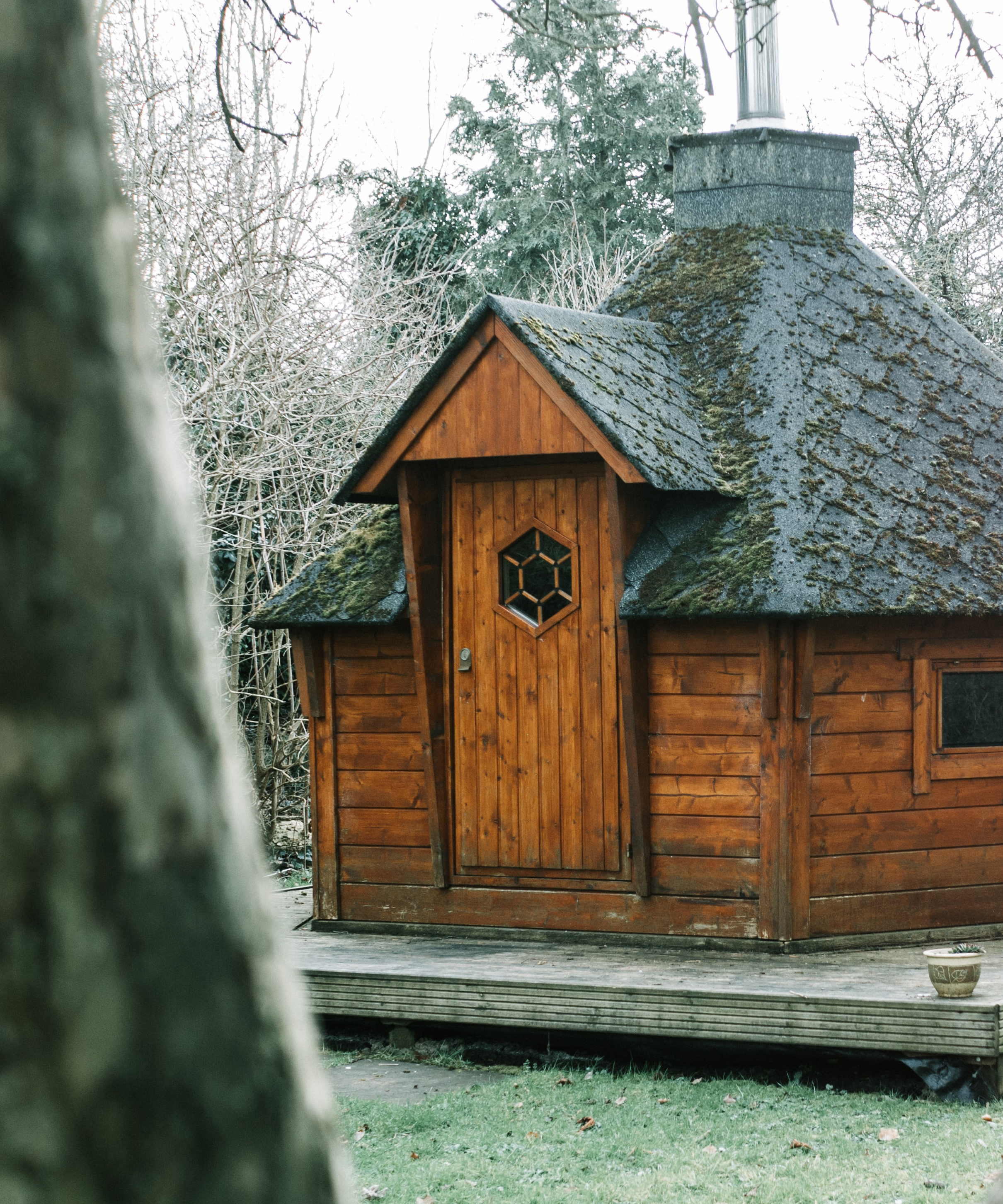
As Robbie Thompson from Finnmark Sauna shares, garden saunas are equally subject to unexpected laws that frequently come as a surprise to buyers. 'Most wood-burning saunas should be at least 2m from the boundary, due to the length of the flue,' Robbie explains.
'Similarly, with verandas and decking areas, you can't go above 30cm from the ground. If you build a deck higher than 30cm, you technically require planning,' he adds.
8. Fence ownership
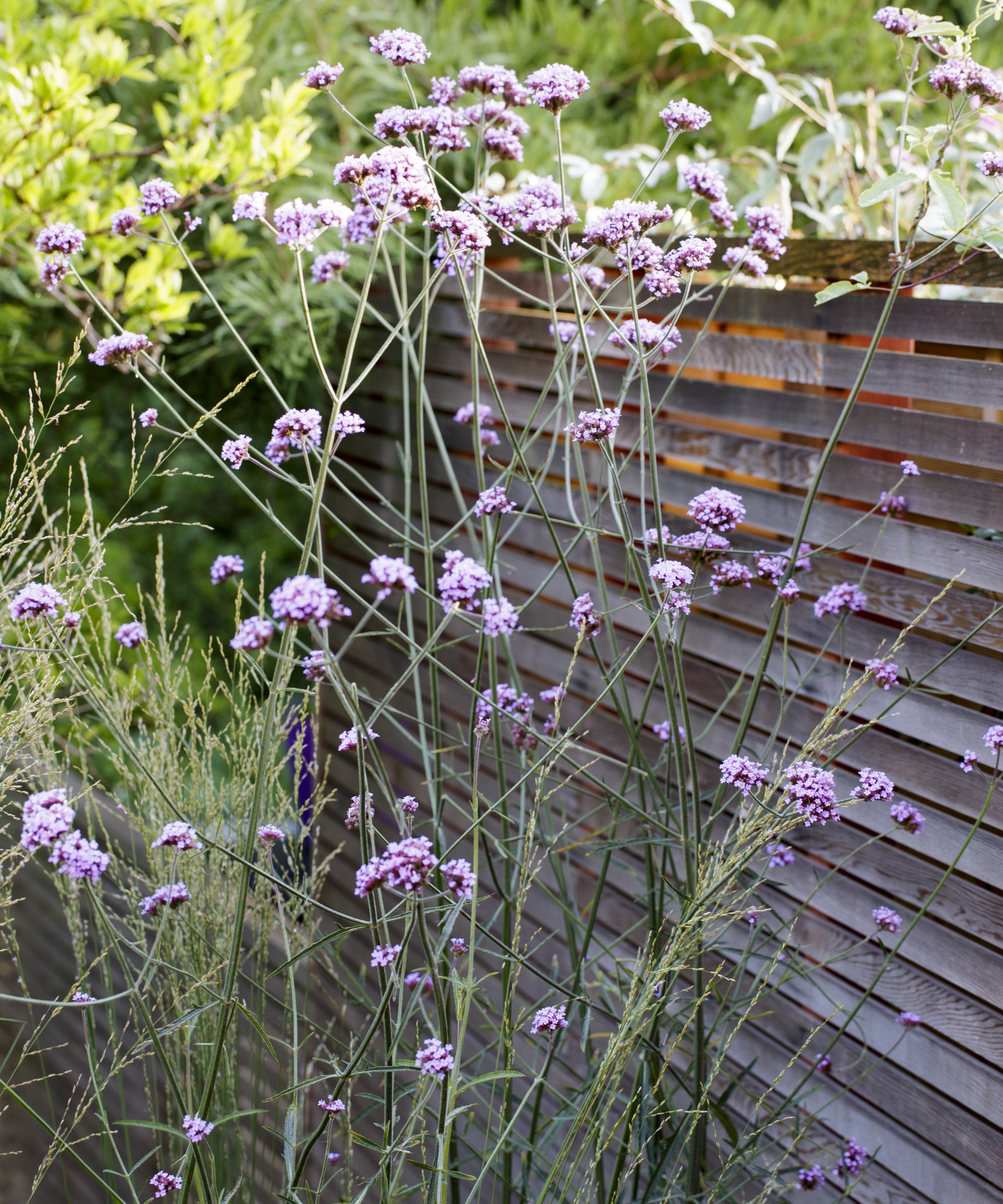
See: Garden fence ideas – define the edges of your garden and create a boundary
The finer details of fence ownership, including what you can and cannot do – tend to be cloudy at best. Plus, there are some legal obligations that may trip up gardeners, as Leigh Barnes at Jacksons Fencing, explains.
Leigh notes that 'unless there is a statutory or common law requirement or it is detailed by the deeds to the property, you are under no obligation to install a fence to indicate the boundary of your land.' However, Leigh continues, highlighting the 'exceptional circumstances which require erecting a perimeter,' including 'land containing cattle.
'The Highways Authority is also required by statute to install rails and fences to maintain people's safety. While you are not required to, installing a fence if you have a pet can help contain it within your boundaries, preventing possible claims for damages under the Animals Act or for trespass or nuisance by your neighbors.'
We'll certainly take notes on these surprising laws throughout these brighter months and beyond.
*Report from Garden Buildings Direct, applicable to UK gardens

Megan is the Head of Celebrity Style News at Homes & Gardens, where she leads the celebrity/ news team. She has a history in interior design, travel, and news journalism, having lived and worked in New York, Paris, and, currently, London. Megan has bylines in Livingetc, The Telegraph, and IRK Magazine, and has interviewed the likes of Drew Barrymore, Ayesha Curry, Michelle Keegan, and Tan France, among others. She lives in a London apartment with her antique typewriter and an eclectic espresso cup collection, and dreams of a Kelly Wearstler-designed home.